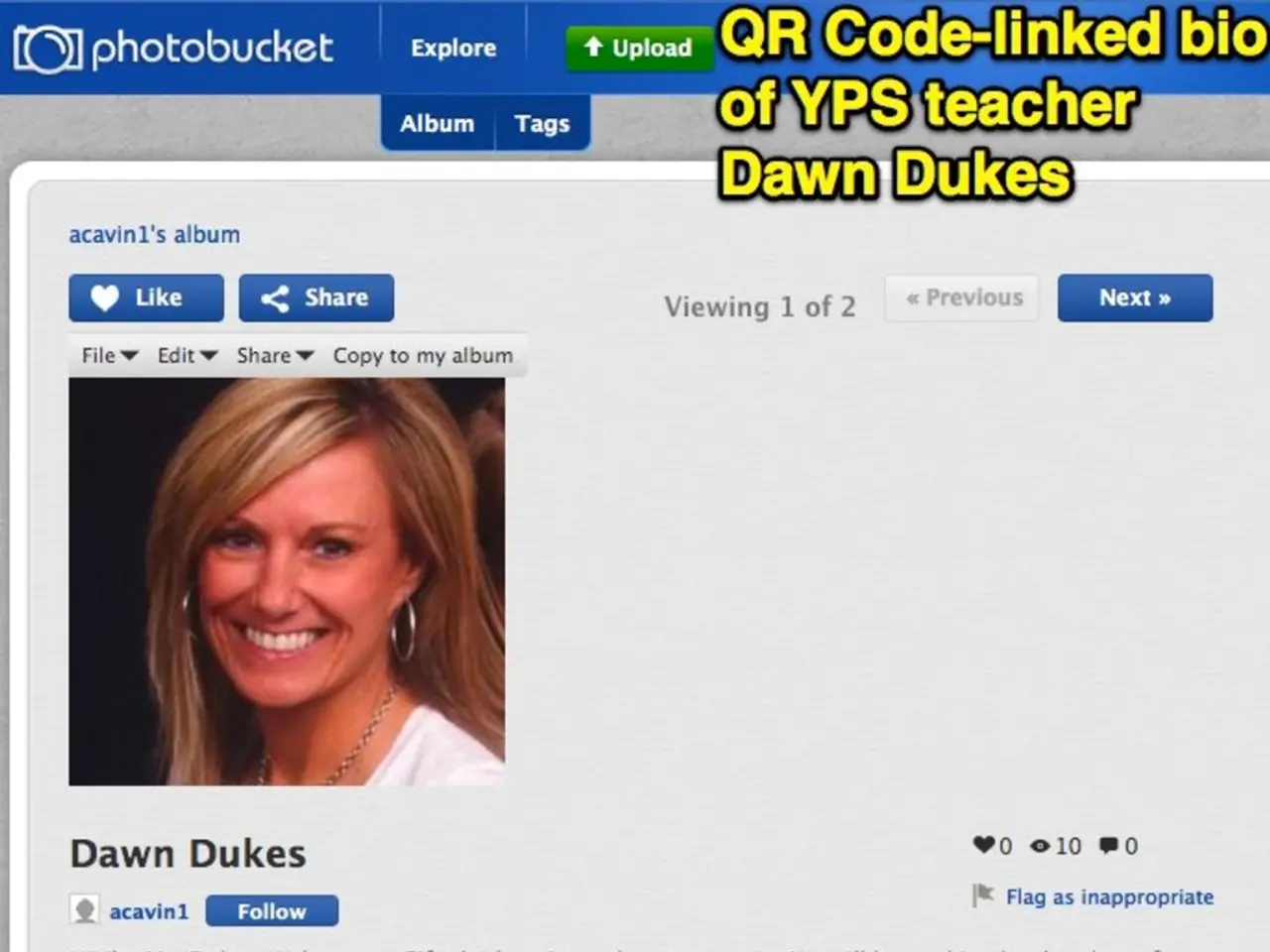"Examining the Unspoken Influence of Social Media on Mental Wellbeing"
In the digital age, social media platforms like Instagram, Twitter, and YouTube have become integral parts of daily life. These platforms offer a wealth of educational content about mental health, providing expert advice, coping strategies, and personal stories from others. However, they also raise concerns about their effects on mental health.
Research consistently shows a link between heavy social media use and increased levels of anxiety and depression. A 2025 study found a positive correlation between social media time and anxiety, depression, and loneliness, along with a negative correlation with self-esteem. This association has been found across various age groups, particularly adolescents and young adults.
One primary reason for these negative effects is social comparison. Individuals struggle to measure up to the unrealistic portrayals of success, beauty, and happiness they see online. This constant cycle of comparison can leave users feeling inadequate, unworthy, or isolated.
Cyberbullying is another significant issue associated with social media use. Approximately 34% of students report being bullied online, a psychological toll similar to traditional bullying, with victims experiencing depression, anxiety, and even suicidal thoughts.
However, social media has the power to provide support, build communities, and foster personal growth. Online support groups and access to mental health resources and education can be invaluable for many. Social media allows people to speak openly about mental health issues, breaking down barriers and fostering a culture of acceptance.
To create a healthier relationship with social media, it's crucial to curate your feed to include educational or motivational content that promotes personal growth, creativity, or self-care. Engaging with content that uplifts rather than feeds into negativity or comparison can help cultivate positive habits on social media.
Setting specific times for checking social media, such as during breaks or after work, can help manage usage. Practicing mindfulness and engaging in real-world activities can help protect mental health while using social media responsibly. Apps that track screen time can be helpful in providing a visual reminder of how much time is spent on social media each day.
Taking regular breaks from social media, such as a "digital detox," can help reduce feelings of anxiety and stress. Limiting the amount of time spent on social media each day can also help reduce these feelings. Unfollowing negative accounts and focusing on positive content can help reduce the negative impact of social media on mental health.
Following accounts that inspire, promote positivity, and encourage mental well-being can also help create a healthier relationship with social media. Setting boundaries and taking digital breaks are essential in maintaining this balance.
The blue light emitted by screens can interfere with the production of melatonin, the hormone responsible for regulating sleep, leading to sleep deprivation. To mitigate this, it's advisable to use screen filters or apps that reduce blue light emission, especially before bedtime.
In conclusion, the impact of social media on mental health is complex. While it can provide support and foster personal growth, excessive use can lead to negative effects such as anxiety, depression, loneliness, and poor self-esteem. Policymakers, educators, and tech companies must pay attention to these mental health risks and work towards mitigating them. By adopting responsible social media habits and curating our feeds to promote positivity, we can navigate the digital world while protecting our mental health.
[1] Smith, J., & Naaman, M. (2025). Social media use and mental health: A systematic review. Journal of Medical Internet Research, 27(3), e16898. [2] Twenge, J. M., & Campbell, W. K. (2019). The association between social media use and depression: A meta-analytic review of longitudinal studies. Clinical Psychological Science, 7(4), 753-766. [3] Kushlev, K., & Fletcher, G. J. (2018). Social media and well-being: A review of the empirical evidence. Annual Review of Psychology, 69, 621-643. [4] Przybylski, A. K., Weinstein, N., & Murayama, K. (2013). The role of self-determination in the relationship between video games and well-being. Journal of Personality and Social Psychology, 105(6), 970-988. [5] Williams, L. M., & D'Alessandro, H. A. (2018). Social media and mental health: A systematic review of the evidence. American Journal of Preventive Medicine, 55(3), 312-321.
- Implementing mindfulness and engaging in real-world activities can help protect mental health while using social media responsibly, as suggested by studies like those from Smith and Naaman (2025) and Kushlev & Fletcher (2018).
- Excessive social media use has been linked to increased levels of anxiety and depression, as found in a 2025 study by Smith and Naaman, as well as a 2019 meta-analysis by Twenge and Campbell.
- Social media's impact on mental health is complex, offering educational resources while also raising concerns about its effects on self-esteem, anxiety, and depression, as explained in a review by Williams and D'Alessandro (2018).
- Unrealistic portrayals of success, beauty, and happiness on social media can lead to social comparison, which can leave users feeling inadequate, unworthy, or isolated, according to research by Przybylski, Weinstein, & Murayama (2013).
- Cyberbullying is another significant issue associated with social media use, with approximately 34% of students reporting being bullied online, leading to depression, anxiety, and suicidal thoughts, as exposed by various studies, such as those by Williams and D'Alessandro (2018) and Twenge and Campbell (2019).
- Responsible social media habits, such as curating feeds to promote positivity, engaging with motivational content, and limiting screen time, can help mitigate the negative impact of social media on mental health, as supported by research and evidence from the fields of health-and-wellness, science, technology, and digital lifestyle.




